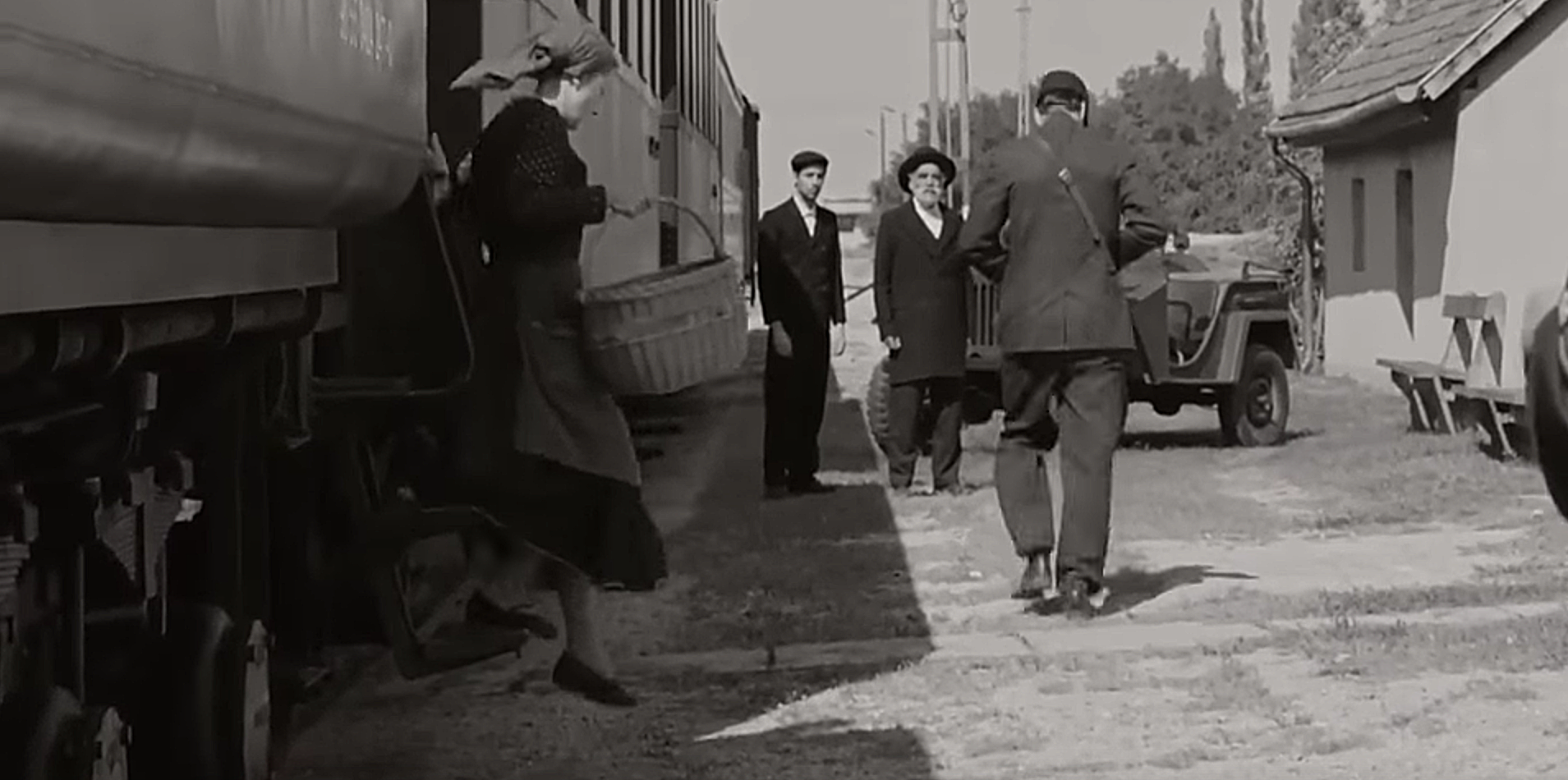USC Shoah Foundation Hosts Screening, Discussion and Educator Seminar on Hungarian Film “1945”

USC Shoah Foundation hosted a special event in Budapest on April 8 to prepare Hungarian educators to teach the new, critically acclaimed film 1945.
1945, directed by Ferenc Török and based on a short story by writer Gábor T. Szántó, is set in a remote Hungarian village in the immediate aftermath of World War II, as the townspeople deal with the unexpected arrival of two Orthodox Jews who survived the Holocaust. The film illuminates a situation many Holocaust survivors faced when they returned home: their former neighbors had taken all their property and belongings and were reluctant to give it back.
The film won audience award at the Berlin International Film Festival and has also screened at the Miami Jewish Film Festival and Philadelphia Jewish Film Festival. It will premiere in Hungary on April 20.
Andrea Szőnyi, USC Shoah Foundation Senior International Training Consultant in Hungary, developed a Hungarian-language IWitness activity for teachers who will want to use the film as an educational resource. The activity, called “1945 -Homecoming,” includes historical documents, testimony clips from the Visual History Archive, clips from the film, and excerpt from the short story the film is based on. It is meant to be used after students have watched the film.
The activity focuses on the complex situation in Hungary after liberation. Students interpret and evaluate different behaviors exemplified through the testimony and film clips and think about their past and present correlations.
“1945 - Homecoming” will be published in IWitness in time for the film’s premiere.
Szőnyi also developed a short introductory activity about 1945 (a Mini Lesson called “Liberation, Return Home”), in which students watch and respond to one clip of testimony, for teachers to use before they show the film.
Szőnyi organized a screening of 1945 for 30 educators from all over the country at a local cinema, which was followed by a discussion with director Török and Szántó. At Berzsenyi High School after the discussion, Szőnyi introduced the two new activities and encouraged the teachers to pilot them with their students.
1945, besides being an entertaining film, offers educators the opportunity to teach their students about the struggles faced by those who came home after surviving Auschwitz and other horrific circumstances to find nothing left from their former lives, Szőnyi said.
“We have a lot of content about this in the Visual History Archive, and it is a problem that is rarely discussed but very important,” she said. “The lack of discussion about it has an impact on our society even today.”
Like this article? Get our e-newsletter.
Be the first to learn about new articles and personal stories like the one you've just read.
